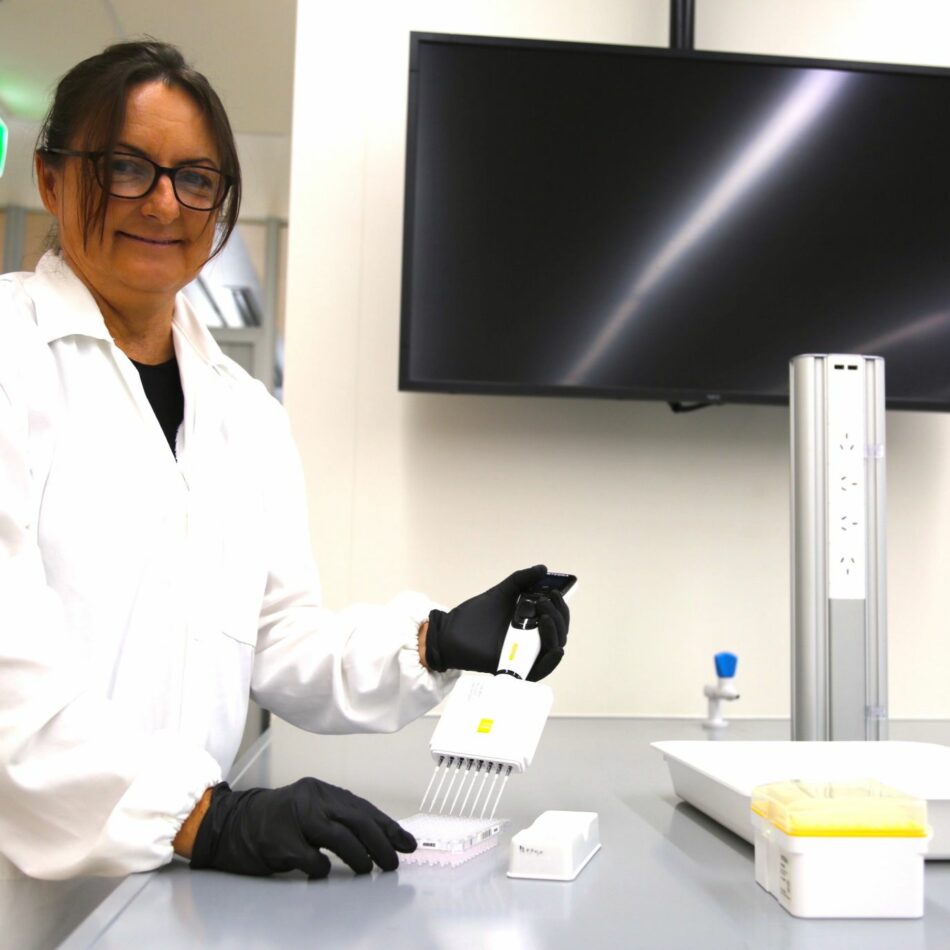A new CRCNA research collaboration seeking to give the north’s prawn industry a biosecurity boost has been launched at James Cook University’s Bebegu Yumba campus in Townsville.
The three-year, $809,000 R & D venture is a collaboration between the Cooperative Research Centre for Developing Northern Australia (CRCNA), JCU, the Fisheries Research and Development Corporation (FRDC), and the Australian Prawn Farmers Association (APFA).
The project was launched today by the Minister for Northern Australia, David Littleproud at the Townsville campus.
The newly announced R & D venture builds on the findings and data from a CRCNA-funded biosecurity audit completed in 2020, which identified the most common pathogens and viruses found in tiger prawn populations across Queensland.
The research team will use this information to determine the impact of purified, sequenced viral extracts on the survival, growth performance and biology of tiger prawns.
Lead researcher Dr Kelly Condon said the work will help industry better understand the viruses’ impact on prawn farming and develop better ways to manage disease impacts on prawns.
“Having these purified strains means researchers can then develop tests to more easily and accurately identify when pathogen strains are present in commercial and wild caught prawn populations.
“More accurate data and knowledge about pathogen virulence allows prawn farmers to better manage their breeding stock through improved screening capabilities.
“It means farmers can start to select for genetically resistant strains and then with the knowledge of the resistance genes be able to screen populations and select for the individuals that have the resistant gene,” she said.
In addition to working to purify the viruses, the research team will put them through a series of experiments to test how different environmental stresses – like changes in temperature and water salinity – may impact on the pathogen virulence.
Tony Charles from the Australian Prawn Farmers Association’s RD&E Sub-committee says this project could deliver big wins for the industry.
“For the first time, industry will have access to purified viral strains to better inform future breeding programs aimed at growing disease resistant or tolerant prawns.
“Although these pathogens and viruses are not harmful to human health, this knowledge will increase certainty in biosecurity management and hopefully help our prawn farmers grow their business profitability,” he said.
CRCNA CEO Anne Stünzner said the project will deliver much more than improved biosecurity management tools.
“Through the work of Dr Condon and her team, Australian prawn farmers will have improved knowledge of the factors that contribute to disease outbreaks in farmed prawns and a workforce with a greater understanding of and access to standardised testing and on-farm disease management practices.”
Wayne Hutchinson from industry R & D body the Fisheries Research and Development Corporation, said for the Northern Australian industry to reach its full potential of increased production from ~4,630 t/year to 16,000 t/year in 2029-2030, biosecurity and disease management needed to be managed in a coordinated way.
“This project will do that by creating viral standards that can be applied to robustly test the efficacy of novel anti-viral therapies and assess genetic resistance to viral infection, leading to increased certainty in treatment options.
“It will also enhance the accuracy of disease detection and management by providing a panel of samples for industry service providers to reference during their routine testing work,” he said.


